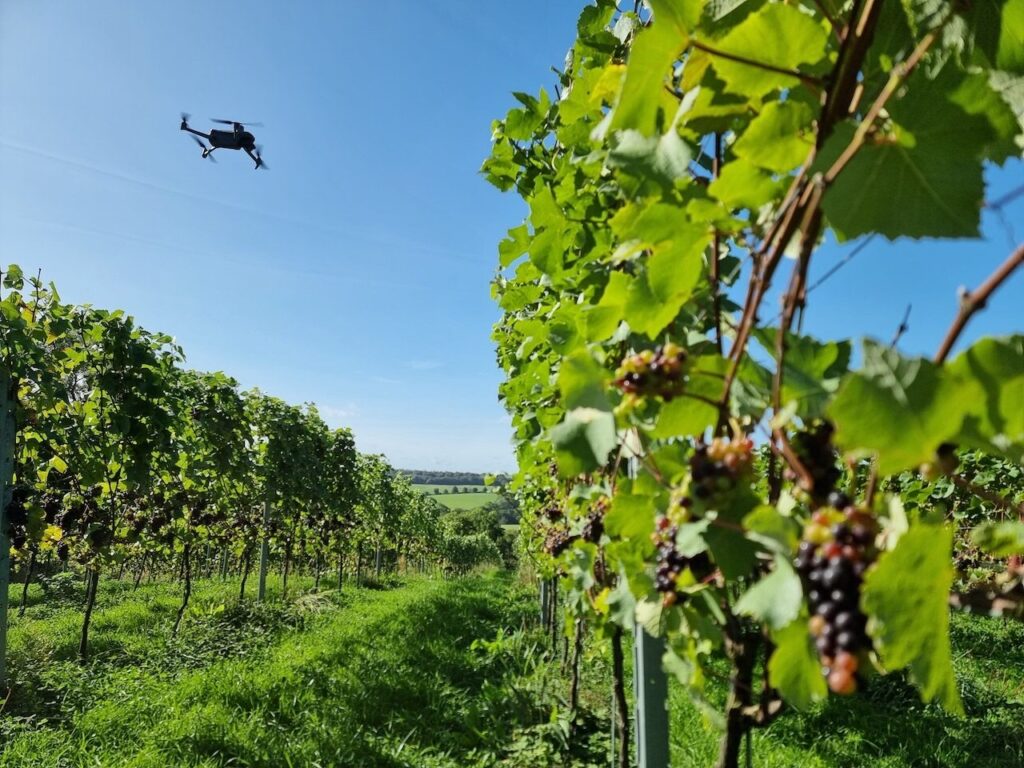UK Agri-Tech Centre sets out ten-year vision for arable and horticulture innovation
A new report from the UK Agri-Tech Centre outlines how technology will transform the UK’s arable and horticultural sectors over the next decade, accelerating productivity, resilience and sustainability.
Entitled “The Future of Arable and Horticulture Innovation: Shaping the Next 10 Years,” the report provides a roadmap to 2035, identifying the enabling technologies and innovation pathways that will drive growth across the UK’s agri-tech industry and deliver real-world impact on farms and within the wider food system.
According to the report, UK agriculture is at a critical inflection point. As climate pressures intensify, labour shortages persist, and input costs continue to rise, the need for intelligent, integrated and efficient farming systems has never been greater.
Emerging tools – from AI and advanced sensing to biotechnology and controlled environment systems – are identified as essential to meet these challenges while unlocking new commercial opportunities for UK-based technology developers.
Three Core Drivers of Innovation
Drawing on interviews and workshops with stakeholders across the supply chain, and informed by the UK Agri-Tech Centre’s technical and scientific expertise, the report highlights three key themes expected to drive new innovation opportunities over the next decade:
- Climate change mitigation – developing adaptive systems to manage weather volatility, resource efficiency, and emissions reduction.
- Automation and digitisation – integrating robotics, AI and data analytics to enhance precision and reduce labour dependency.
- Diversification of production – expanding new systems and markets that increase resilience and economic diversity across UK agriculture.
“For agri-tech to realise its full potential, businesses need both clear pathways and the ability to connect innovations with the complexities of real-world farming,” said Dr Harry Langford, Innovation Director at the UK Agri-Tech Centre.
“By linking research and technology development with commercial practice, the sector can bridge critical gaps between concept and adoption, delivering scalable, on-farm solutions.”
Four Pathways to 2035
Building on these core themes, the Centre defines four innovation pathways to guide technology development and adoption across arable and horticultural production through to 2035:
- Intelligent and data-driven agriculture
- Deploying AI, robotics and sensing technologies to enable predictive, data-led farm management and precision input use.
- Climate resilience and biotechnology
- Integrating precision breeding, early detection and next-generation biological tools to deliver adaptive management in changing environments.
- Regenerative farming and agri-tech
- Linking bio-based inputs, digital monitoring and MRV (measurement, reporting and verification) systems to enhance soil health and demonstrate measurable sustainability gains.
- New and diversified production systems
- Expanding controlled-environment, circular and alternative-protein systems to enable year-round, resource-efficient food production.
Together, these four pathways form a practical framework for guiding both public and private investment in agri-tech, supporting innovators to translate promising research into scalable, market-ready technologies.
Turning Research into Real-World Impact
The report also underscores the need for joined-up investment and shared infrastructure to accelerate progress.
“Real progress depends on developing and adopting innovation that drives sustainable systems,” said Dr Ruth Bastow, Chief Technology Officer at the UK Agri-Tech Centre.
“To grow the UK’s agri-tech advantage, we need a clear vision that aligns science, policy and business. By working collectively across the sector, we can turn technological breakthroughs into practical tools that drive productivity, resilience and environmental gain.”
Supporting the Agri-Tech Ecosystem
The findings reinforce the UK Agri-Tech Centre’s central mission: to help technology developers, producers and researchers bring innovations from lab to market. Through access to facilities, expertise and partnerships, the Centre supports the full innovation lifecycle – from early-stage testing to commercial deployment.
By connecting innovators, farmers, policymakers and investors, the Centre aims to ensure that the UK continues to lead globally in sustainable, technology-enabled food production.
As the report concludes, the next decade will demand a systemic approach to innovation – one that integrates data, biology, and engineering within regenerative and profitable farming systems.
Download the Report
The Future of Arable and Horticulture Innovation: Shaping the Next 10 Years is available from the UK Agri-Tech Centrewebsite: www.agritechcentre.com
Related news:
Sussex food and wine sector explores digital tools for industry-wide benefits


